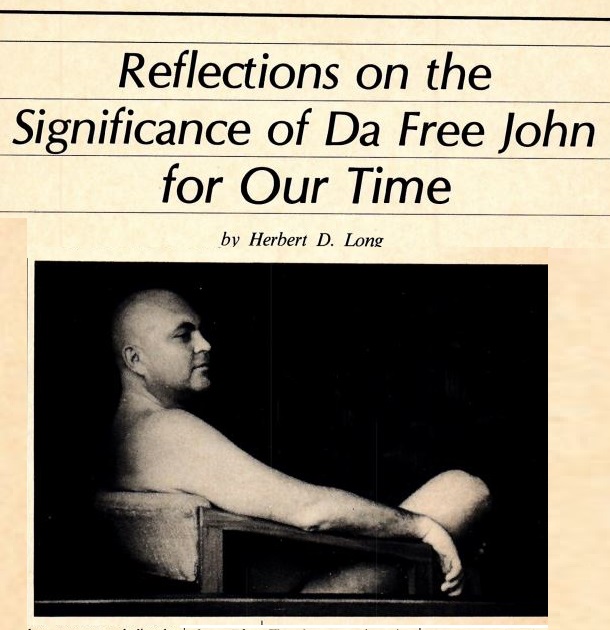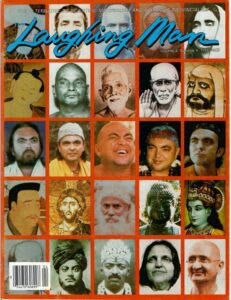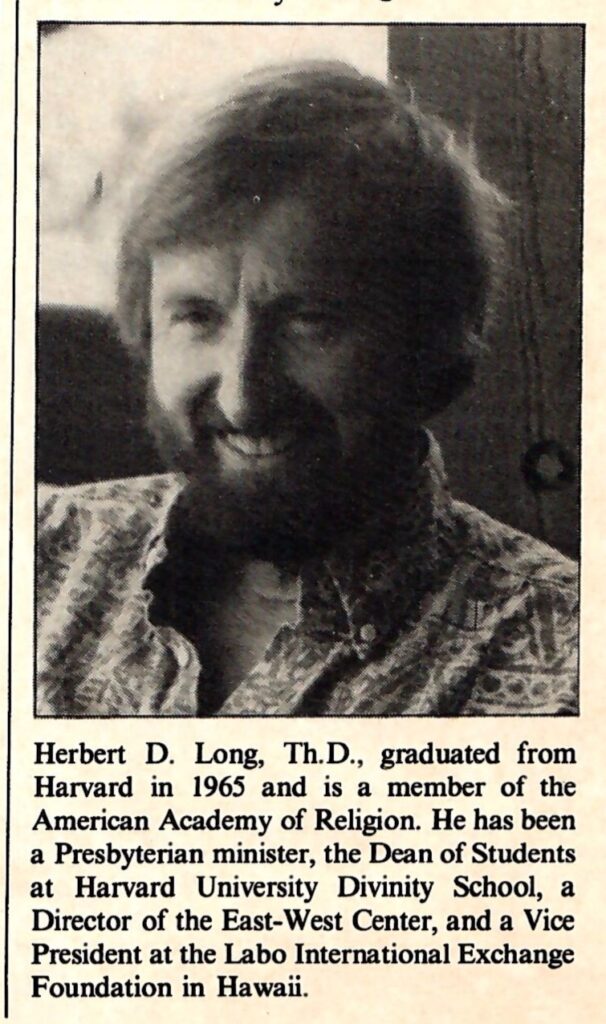
Originally published in Laughing Man magazine, Vol 4, NBR 4, 1984

As contemporary Westerners, our heroes are by and large men and women of action—the movers and shakers in politics, social reform movements, science, technology, business, and the arts. Once in a great while a religious leader such as Martin Luther King appears on the scene to prick our consciences and stir us to rectify years of injustice. And from time to time, we have been moved by charismatic preachers who, touching our emotions, inspired us for a moment to yearn after the ground of being, hoping for a salvation that seemed so elusive in our daily banality.
While the way of the mystic has not been absent in Western tradition, it has not been dominant either. Perhaps for this reason many of us in the modern West, no longer feeling empowered by our heroic tradition, looked Eastward during the past several decades (preceded by spiritual adventures at least as early as the late eighteenth and nineteenth centuries). India, in the eyes of the Western seeker—however distorted from actual Indian life—has come to symbolize the land of spirituality. It is perceived as a land where mystics continue to evoke the respect of their fellows and speak to Westerners tortured by guilt, complexity, deep feelings of meaninglessness, and visionary dreams which have become nightmares.
Against the background of the heroic Western and mystical Eastern traditions, the person and work of Da Free John present us with another way. Da Free John appears neither as a hero nor as a mystic. Versed—indeed steeped—in both traditions, he has been working quietly over the past dozen years with a small group of devotees to embody a teaching which speaks uniquely to our time and condition.
It was only a year and a half or so ago that I first came across the name of Da Free John in Ken Wilber’s book, Up from Eden. That began an intensive period of reading. Da Free John’s books are not like any theological treatises I have come across before. They are not works of systematic theology or dogmatic theology, nor are they exegetical works on religious texts. Neither are they works on religious history, meditation, nor spiritual psychology. Certainly aspects of all of these disciplines can be found in Da Free John’s writings, and yet, something else is going on.
First of all, his writings are an extension of his own being, a form of his agency. They are not scientific tomes in the sense that their bias is one of objective disengagement and description. Neither are they poetry nor autobiography, an extension of his interior life. Both objectivity and subjectivity are present, yet somehow transcended. Or, put a little differently, objectivity and subjectivity are grounded in Being, Reality, or Truth that includes them both. We have here a new literary genre that does not fit any with which I am familiar.
Still, the point is not that we are dealing simply with a new literary form. The point is that the still-growing stream of publications continues to disclose a Spiritual Master interacting with his devotees in such a fashion that the teaching itself reflects that interaction. The writings are a treasury arising out of the process of the Divine/human encounter. They are the consequence of the organic involvement of an Enlightened One who presumes the Enlightenment of his hearers and seeks compassionately to wean them from the pond in which, like Narcissus, they day after day, lifetime after lifetime, stare at their own likenesses, oblivious to the Radiance permeating and surrounding them.
In his various works, Master Da Free John provides a radical critique of our tendencies toward dependency, rebellion, and adaptation to the status quo. He calls us to create a wisdom culture based on a level of functioning which itself is grounded in the Reality that embraces all that is. Our tendencies incline us rather to yearn after the strong parent figure who will care for, lead, protect, and inspire us when feelings of impotence tend to overwhelm. Or, if we have moved through our childhood dependencies, we join the ranks of those who struggle to stand on their own two feet and eschew dependency on any person or institution posing a threat to our “freedom.” Then, if we have gone beyond our adolescence, we make peace with the principalities and powers—albeit with the aid of therapists, who increasingly replace priests and ministers in respect and influence—and enter our “maturity.” That is, we adapt to the commonly held views of the world. We seek less rebellious ways to bring about the changes in ourselves and society that we deem necessary to survival and the “good life.”
It is difficult for a Westerner to acknowledge a living Spiritual Master or Adept. What is an “offense” to our Western sensibility is the very idea of a Spiritual Master, one whose function it is to awaken us to the fact that what we commonly assume to be our waking state is just a form of unconsciousness, a sleeping state in the Divine view of phenomena. Indeed, we treat the Spiritual Master emerging in our time with little more regard than contemporaries of Jesus or Buddha treated them. And yet, so powerful are our yearnings for dependence, freedom, and belonging that we attach ourselves with great tenacity to figures upon whom we can focus those yearnings. It is precisely these tendencies—having erupted in the fascisms, social revolutions, and counter-revolutions of the twentieth century—that the true Spiritual Master must engage as he embodies Truth in our time. Consequently, the writings of Da Free John include a running critique of our tendency to turn him into just another cultic religious figure, a big daddy, revolutionary or socio-political reformer.
Fundamentally, and above all else, Da Free John calls us to Understanding. This is not just intellectual understanding in the sense that we grasp the essence or logic of an argument. It is rather an existential Understanding, an Understanding that penetrates our tendency both to objectify and subjectify whatever arises. He calls us to see that we are constantly engaged in a process of self-contraction and living an egoic existence—that our relations, our politics, indeed our cultures are grounded in this process. Consequently, efforts at therapy social and political reform, futuristic planning, peace movements—all embody the same ego drives as are embodied in the conditions they are attempting to rectify.
This is a sobering judgment for those of us having a history of social concern on the one hand and/or mystical yearnings on the other. It is also a sobering judgment on our religious traditions, which all too frequently have become the kind of religions Jesus himself criticized.
As one who has been a student and teacher of theology, a minister, a social activist, a spiritual seeker, an educator in international studies, and an experimenter in new forms of family life, encountering the compassionate critique of Da Free John has been an illumining event. In his company (through his books, devotees, and sanctuaries), I have had to look at my own tendencies toward childish dependence, adolescent rebellion, and a false sense of maturity. I have had to see myself as Narcissus in love with my own reflected image.
It is my strong sense that in the person of Da Free John we have been given a rare opportunity to see beyond band-aid solutions to the human dilemma, indeed to have our view of life-as-dilemma itself transformed. Dilemmas are our own creation. Arising out of our egoic tendencies, they reflect life lived out of separateness, out of the process of self-contraction when we see the world as objects to be overcome and subjects to be protected. Once we have understood the process of self-contraction, and continue to do so from moment to moment, then life-as-dilemma is transcended as we see our “original face.”
Da Free John’s chief function in our midst is to serve as Agent to our understanding. So, while it belongs to our humanness to grow through our childhood, adolescence, and what we usually understand as maturity, we are not fated to be stuck in any one of these phases. A true wisdom culture evolves simultaneously with our understanding. Da Free John, as Agent of that culture, invites us to enter and to manifest it, even in the midst of our daily lives.
